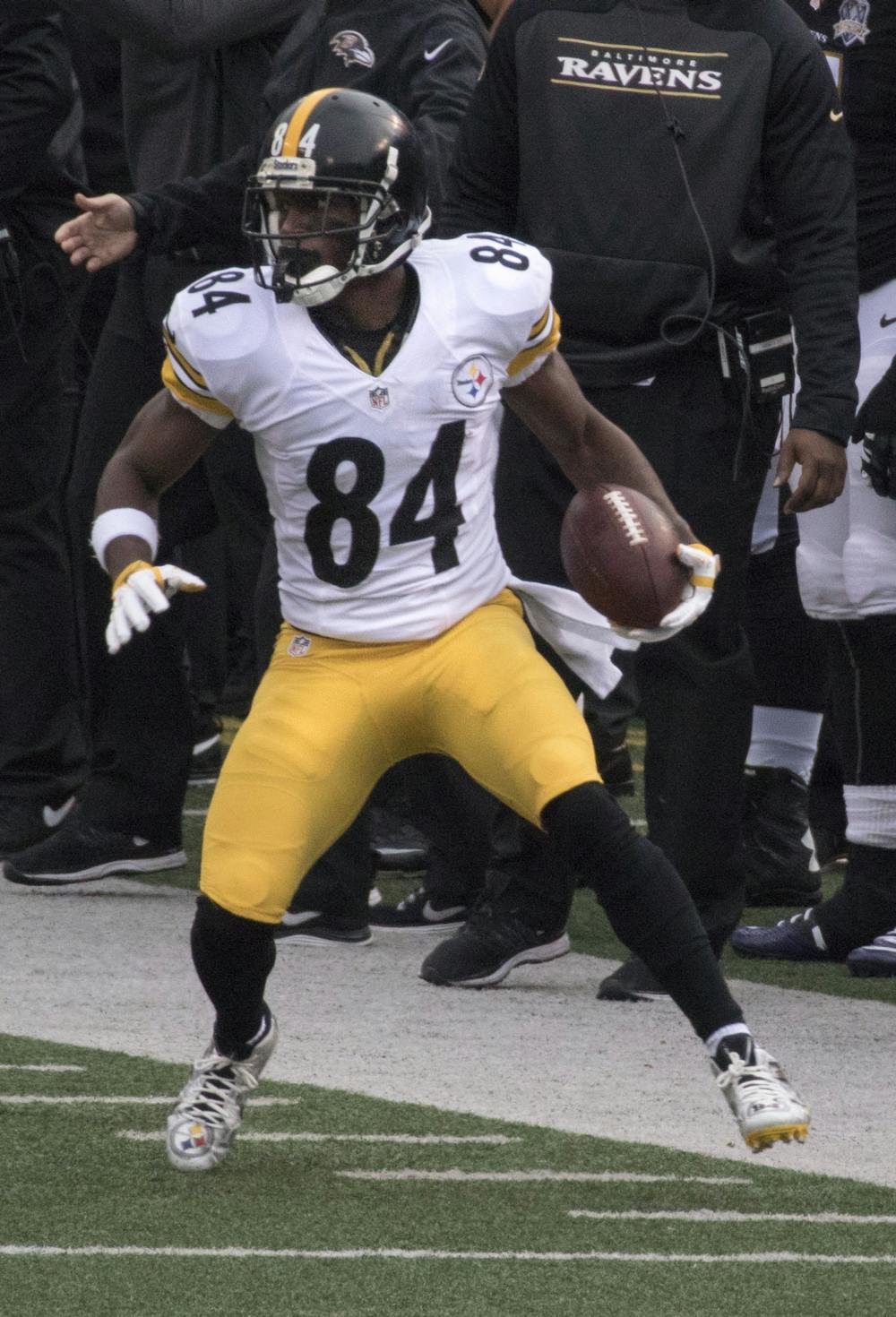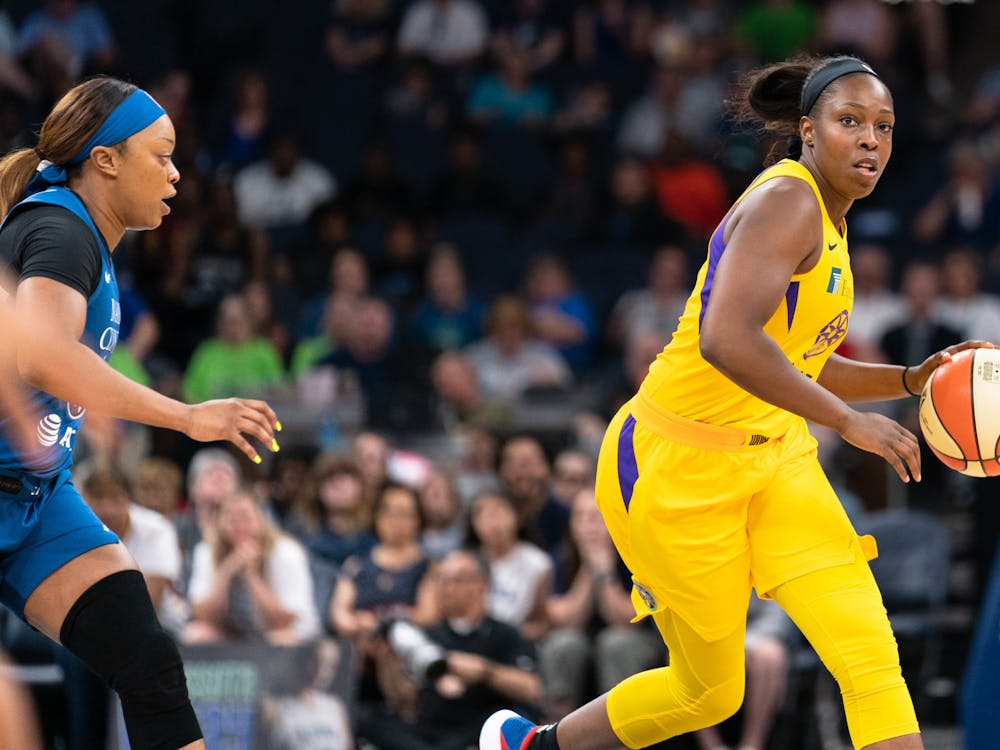
The longest-running soap opera the NFL (National Football League) has ever seen continues.
Antonio Brown, a 31-year-old four-time All-Pro wide receiver, signed a one-year deal with the Tampa Bay Buccaneers. This deal reunites him with quarterback Tom Brady, with whom he played for a couple of months during his time with the New England Patriots late last season.
Most people who actively follow the NFL probably know about Brown and his polarizing history in the League. Since 2019, Brown has been a part of three NFL teams: the Pittsburgh Steelers, the Oakland Raiders (now known as the Las Vegas Raiders) and the New England Patriots.
Brown played for the Steelers starting from 2010 to March of 2019. Although he had a great career there, leading the League in receiving touchdowns in 2018, his relationship with the team slowly soured. His constant production as a top-three receiver was not enough to save the relationship. His conflict with quarterback Ben Roethlisberger in particular was a reason as to why he requested a trade from the Steelers.
The Steelers agreed to trade Brown to the Raiders in March of 2019. This deal made Brown the highest-paid receiver in the NFL.
During the summer before the 2019 preseason, Brown, due to not wearing the proper protective footwear, got frostbite on his feet following a cryotherapy session. This oversight forced him to miss all but one training camp practice. He then filed two grievances, stating he wanted to wear his old helmet, which did not meet NFL standards. After this incident he skipped two practices with the Raiders.
Due to the unexcused absences, he was fined a combined $54,000 by general manager Mike Mayock. Brown posted the letter of his fines on Instagram, a move that was scrutinized around the League. The following day Brown confronted Mayock and had a verbal altercation, resulting in another fine of $215,000.
Though he was scheduled to play in the first game of the season against the Denver Broncos, he demanded yet another trade that the Raiders were happy to grant him. The team released Brown without him ever playing a regular-season game.
On the same day Brown agreed to a one-year deal with the Patriots. His time there was short-lived, as Brown lasted a total of 11 days before being released due to sexual assault allegations.
During the 2020 offseason, Brown retired once, unretired, implied that he's retiring again, changed his mind once again, lost millions in potential income and created hundreds of controversial posts on social media.
While his drama on the football field was occurring, his drama off the field wasn’t any less shocking. In late January of this year, Brown faced charges for burglary with battery, a felony that has a maximum sentence of life in prison, and burglary of an unoccupied conveyance and criminal mischief of less than $1,000.
In addition, Brown has also been accused by a former trainer of sexual assault against her on three separate occasions. This civil lawsuit is still pending and is set for trial in December of 2020.
Although he is a talented player, is he worth the hassle for teams? He already has a track record of being unpredictable and difficult to work with. With a pending lawsuit, should the NFL let Brown return to play so easily? It seems like Brown’s reentry into the NFL is pretty easy, but this is nothing new. The NFL has a history of letting players off the hook or at least being inconsistent with the punishments they’re handing out.
In 2014 the NFL suspended Ray Rice, Baltimore Ravens’ running back, for two games after a domestic violence case in New Jersey where Rice hit his then-fiancée Janay Palmer. In order to get prosecutors to drop the aggravated assault charge, he entered a pretrial intervention program. All he had to do was community service, and he was given no jail time. There was a lot of backlash and widespread criticism due to the NFL’s leniency with Rice’s case, as he faced a shorter suspension than other players accused of drug violations.
Five years later TMZ released a video of Rice hitting Palmer in an elevator and dragging her body out of the elevator while she was unconscious. This led to Roger Goodell, the NFL commissioner, suspending him indefinitely and also his release from the Baltimore Ravens. Since then, he has never played another game in the NFL and announced in 2018 that his career was over.
On the contrary, Denver Broncos’ strong safety Kareem Jackson was also given a two-game suspension but for entirely different reasons. In September of 2019, he was pulled over for speeding and was charged with driving under the influence (DUI).
In New Jersey, the type of aggravated assault Rice committed is considered a felony with a maximum sentence of five years in prison. In Colorado, while there are many types of DUI offenses, all considered misdemeanors, and the harshest punishment is only a maximum of two years in jail.
Although Rice did attend the program that helped lessen his punishment, the two offenses are still on completely different levels. And yet when it came down to the NFL, both were given the same number of game suspensions.
So, what’s the difference? According to the most important positions in football ranked by the NFL, the running back is ranked seventh, while the strong safety is ranked eighteenth. Though this isn’t particularly strong evidence and can be challenged, it still shows that Rice and Jackson played different positions with some variance in value.
Additionally, Rice went to three Pro Bowls and played on the 2012 Ravens team that won Super Bowl XLVII. He is also the Ravens’ second all-time leading rusher while also being second in rushing attempts and touchdowns as well as third in combined touchdowns. While Jackson did and still does have a great football career, he doesn’t have nearly the same amount of fame and statistics as Rice does.
Consequently, is the NFL letting Brown, someone who still has pending sexual assault charges against him, back into the NFL too fast? If they were to let him back into the League, shouldn’t they at least wait until his legal matters have been absolved?
Either way, it seems like Brown is happily on his way down to Florida, and hopefully he can play a clean season without stirring up too much controversy. But if things don’t work out, the NFL should take responsibility. Don’t be surprised; the signs were there all along.





